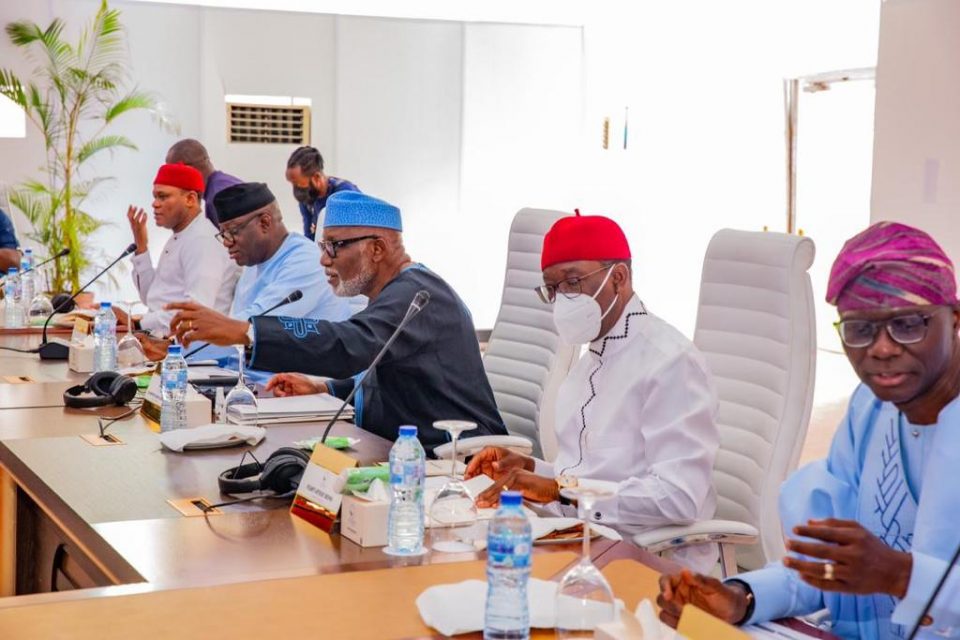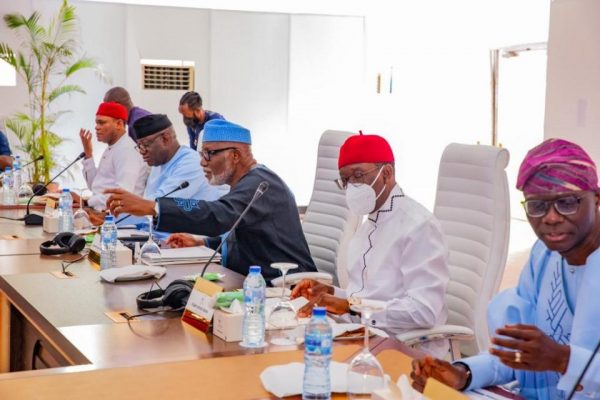Echoes of a southern coalition reverberate more than ever in recent times. There is the Southern Governors’ Forum, the South-South governors forum, the South West Governors Forum, the South-East governors’ forum – all comprising some of the formidable forces that counter-oppose the persistent rhetoric from some political bigots.
Read more about Politics
As bigoted organisations such as the Miyetti Allah Cattle Breeders Association Nigeria or any other hegemonist organisation individual from the North react to Southern opposition in a knee jerk reaction, they struggle to understand why coalitions are springing up across the South unlike before.
The famous cartoonist, Mike Asukwo, recently pictured the situation in an apt caricature piece that while the North plays the game of chess with the country, the South is rather prepared for a lucky game of Ludo with their Northern counterparts.
Historically, the South has been known to have a level of cultural and economic cooperation since before the British almagamation of the Northern and Southern Protectorates of Nigeria in 1914. Legislative elections into parliament roles started in the South as far back as 1923 which further cemented political cooperation in the South.
Political cooperation continued to fester and it further cemented any common cultural association that the South had pre-independence. The NCNC as a political party was largely composed of adherents across the South with members who voted as a common interest group under Herbert Macaulay. While Nnamdi Azikwe took charge of the NCNC party, Obafemi Awolowo formed the Action Group. The fissures started to form within the South.
The occupying ethnic groups populating the South have had trade cooperation since agriculture, oil dealings and a more common geographical reality forced them together out of their respective ‘independence’. However, irrespective of all the commonalities the Southern people of Nigeria share, the ethnic groups of the Southsouth which comprised a majority of Urhobo, Igbo, Ijaw, Itsekiri, Benin, Kalabari, Yoruba, Esan, Ibibio, Efik, Isoko and others have appeared to band together reluctantly and more out of necessity compared to their nearest Northern neighbours across the Niger.
Post-independence, when the Premier of the Western region, Awolowo, was looking to more economic cooperation with Eastern Nigeria, legend has it that the leading Eastern leader of the day, Azikwe, chose to ally instead with the Prime Minister Tafawa Balewa’s NPC as a more soothing option. This broke the camel’s back and he withdrew from pursuing either a National or Southern agenda. The chasm grew wider and the decision further weakened the South – halting any signs of economic or political cooperation among the Southern bloc.
Sign up to the Connect Nigeria daily newsletter
The emergence of the Nigeria-Biafran War, where several southern personalities took decisions in furtherance of the best interest of their people also effectively delayed the realignment of the Southern purpose. The more aligned Northern oligarchs who have found common purpose as laid down by the far-reaching hegemonic conquests of Usman Dan Fodio now feel threatened about the erasure of political differences in the Southern bloc.
It is only more recently that the South found more reasons to reunite as a bloc to counter the predominant Northern narrative in the larger part of the century-old Nigerian union.
For pressing matters such as restructuring and true federalism, resource control, open cattle grazing, and educational or economic liberation, the South is now increasingly speaking out rather than always following the dictates of their Northern counterparts. Hitherto ethnic-focused groups such as the Afenifere, Ohanaeze Ndigbo, the Pan-Niger Delta Forum (PANDEF), aside from the Governors’ forum are again starting to resist government policies from the centre which are not favourable to the advancement of their people.
Now that the core leaders and the peoples of the South have found more reasons to unite under a common interest as they sheath their old swords, they are beginning to form a formidable force in steering the fiscal policy direction of the nation.
Slowly, the people are realising the alliances that need to be formed to wrestle Southern ‘independence’ once again from Northern hegemony. The Elders and the Governors of the South are realigning and cooperating once again. The legislators, however, are yet to understand the message that it is not business as usual of pandering to Northern leaders.
The events in the National Assembly in the past few weeks where faulty versions of key legislation such as the Petroleum Industry Bill (PIB) and the Electoral Act were passed with the cooperation of Southern legislatures is an anomaly. As 2023 approaches, the willingness of Southerners to move the country forward will make them more intentional in choosing leaders who will not only direct from executive stables but also legislators who will be focused on representing their people properly.
This is when the North realises there is a stalemate and the Nigerian union will be renegotiated afresh.
Featured Image Source: Punch Newspapers
Got a suggestion? Contact us: [email protected]


